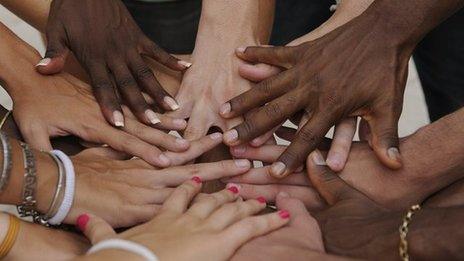One third of Britons 'admit being racially prejudiced'
- Published
- comments
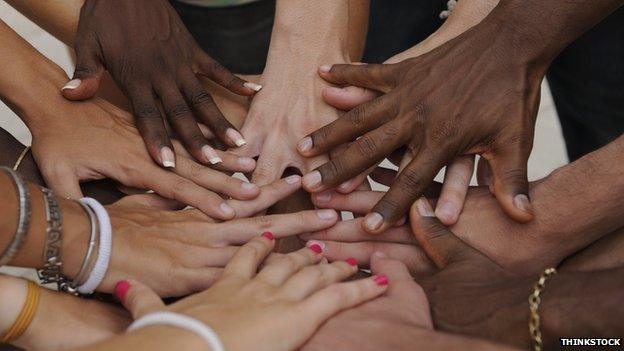
There were wide variations in racial prejudice across the country
Nearly a third of people in Britain admit being racially prejudiced, research has suggested.
The British Social Attitudes survey, external found the proportion had increased since the start of the century, returning to the level of 30 years ago.
Some 30% of the 2,000 people polled by social research company NatCen described themselves as either "very" or "a little" race prejudiced.
Penny Young, chief executive of NatCen, said the findings were "troubling".
The survey also found wide variations currently across the country: 16% of people in inner London admitted to prejudice but the figure was 35% in the West Midlands.
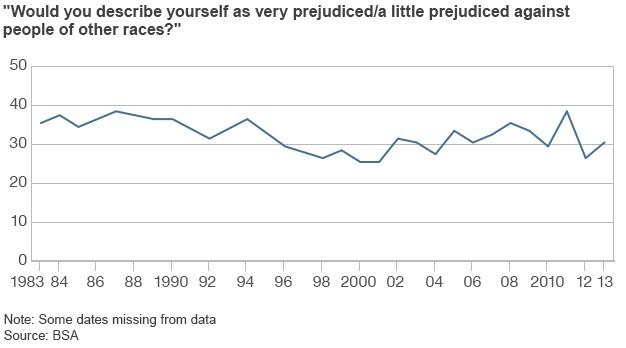
Older men in manual jobs were the most likely to say they were prejudiced, but the group recording the biggest rise was educated male professionals.
Levels of racial prejudice increased with age, at 25% for 17 to 34-year-olds compared with 36% for over-55s.
Education had an impact with 19% of those with a degree and 38% of those with no qualifications reporting racial prejudice.
'Socially liberal'
The social attitudes survey has been carried out every year since 1983 - it recorded an all-time low of 25% of people describing themselves as racially prejudiced in 2001.
People were asked whether they would describe themselves as prejudiced "against people of other races".
Ms Young told BBC Radio 4's Today programme self-reported prejudice was "very difficult" to study in detail.
It appeared to be in "inexorable decline" in 2001 as part of "increasingly socially liberal Britain" - but has since gone back up.
The effect of the 9/11 attacks and an increase in concern about immigration were two possible reasons for the turnaround, she said.
But the BBC's home editor Mark Easton said that the figures were not conclusive evidence of rising racism, when they were analysed over a wider timeframe.
'National psyche'
On immigration, more than 90% of those who admitted some level of racial prejudice wanted to see a reduction in the number of people entering the UK.
But so did 73% of those who said they were not racially prejudiced.
Ms Young added: "Levels of racial prejudice declined steadily throughout the 90s, but have been on the rise again during the first decade of this century."
Alison Park, co-director of the survey, said, external: "Racial prejudice, in whatever guise, is undoubtedly still part of the national psyche."
But there were warnings about drawing conclusions from people's verdict on their own prejudices.
Sunder Katwala, director of the identity and integration think tank British Future, said it was a "difficult measure to use".
"People who said they were not at all prejudiced in 1983 often held quite tough views about race", he said.
Today, younger people "hold themselves to a much higher bar", he said.
"It's quite a complicated way of doing it and not a good way to track things over time."
Politics lecturer Dr Rob Ford, of the University of Manchester, added: "The problem is there is no definition of 'prejudice' offered in the question".
- Published28 May 2014
- Published8 May 2014
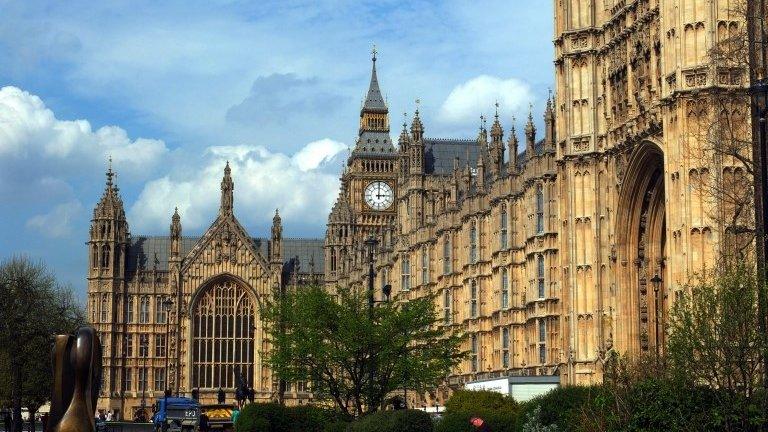
- Published15 January 2014
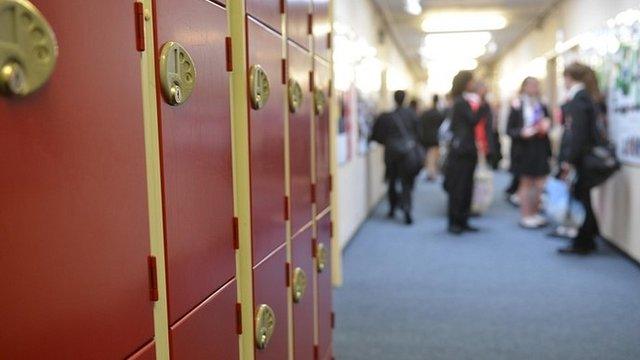
- Published28 May 2014
